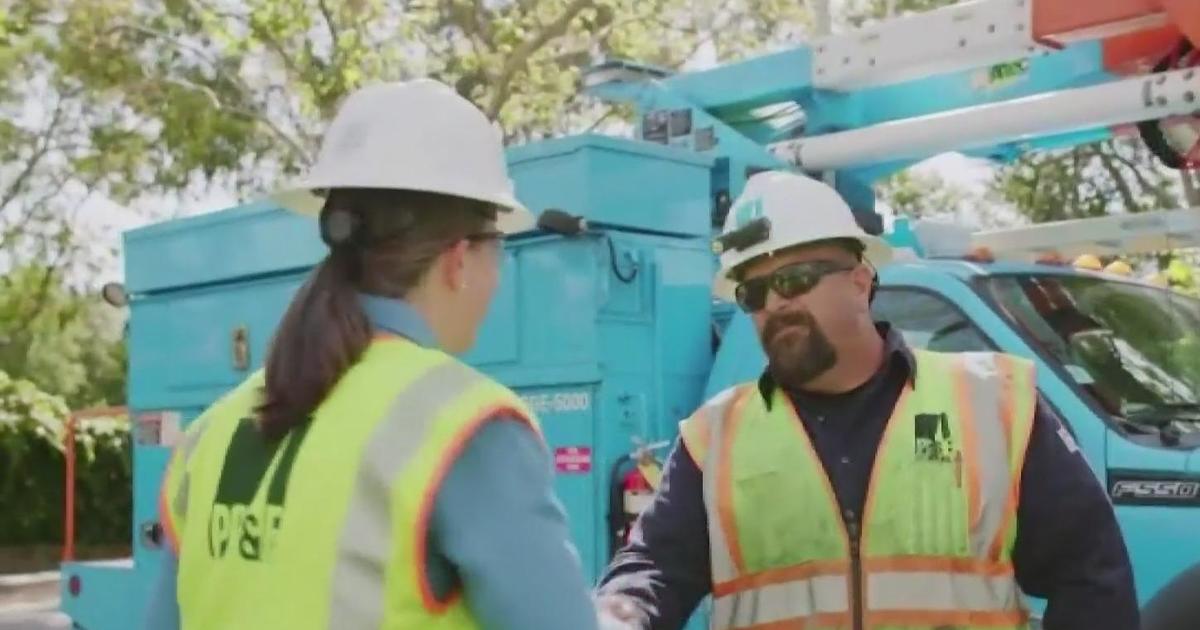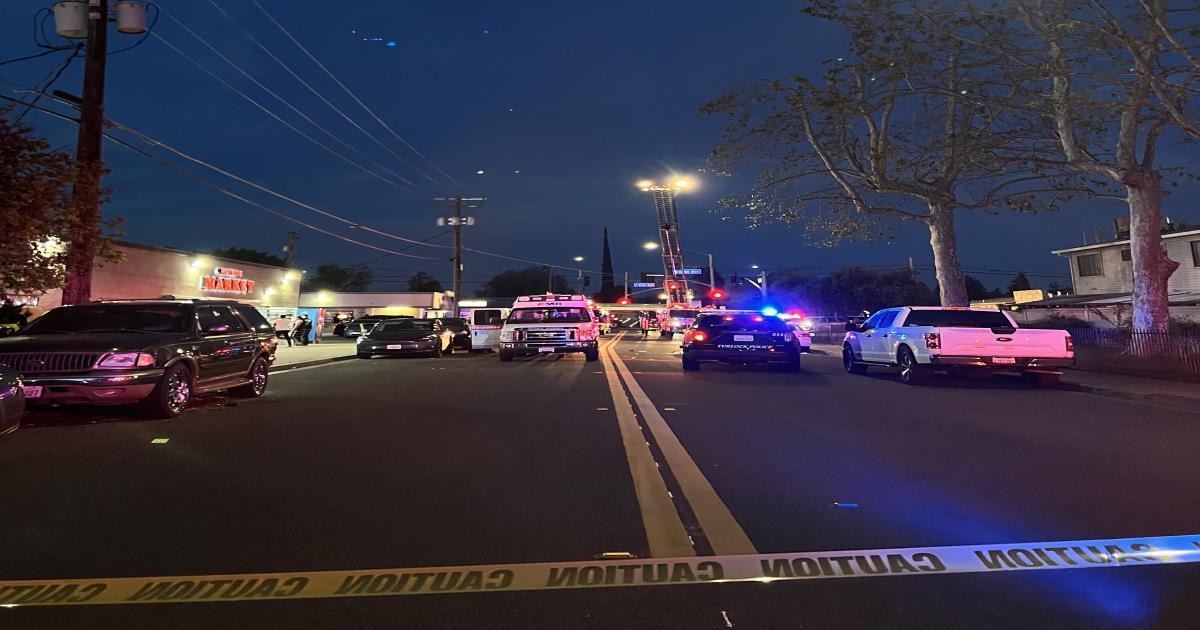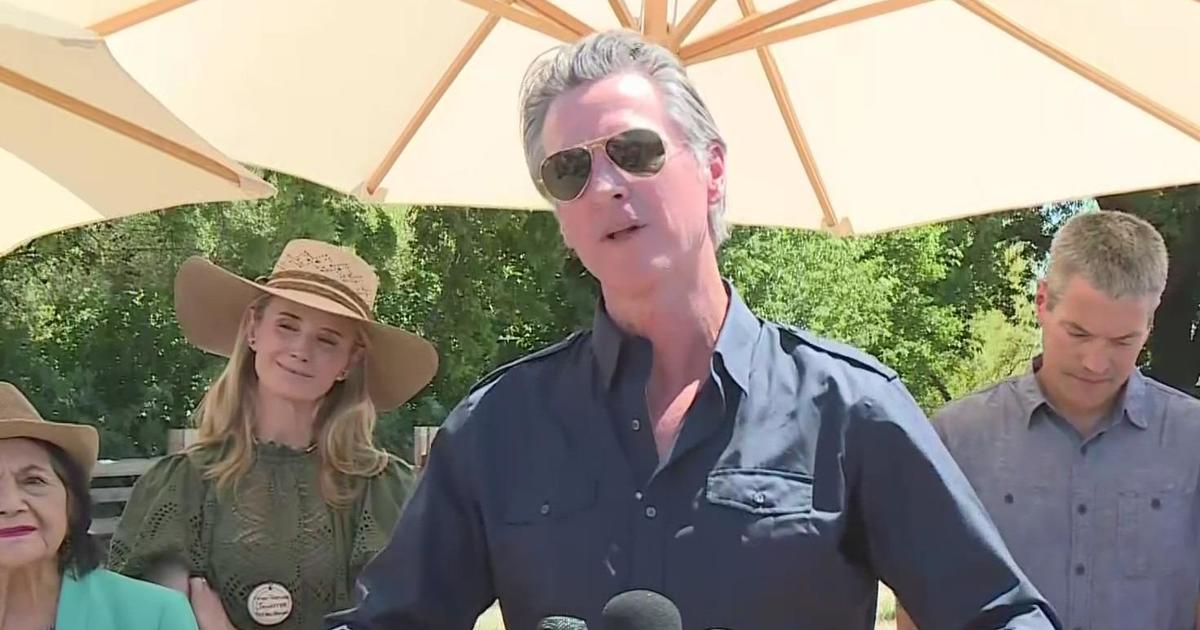Bill Would Expand Calif. Smoking Ban
SACRAMENTO, Calif. (AP) -- California was a pioneer in prohibiting tobacco use in the workplace during the 1990s, but the ban left loopholes that a state lawmaker now wants to close.
State Sen. Mark DeSaulnier said other states have since surpassed California and enacted more expansive crackdowns on smoking in the workplace.
He won passage in 2007 of a bill to expand the workplace smoking ban, but it was vetoed by former Gov. Arnold Schwarzenegger, a cigar aficionado who had an outdoor smoking tent erected just outside his office in the Capitol. He has been replaced by a non-smoker, Democrat Jerry Brown.
"We're going to give it another try with a new governor," said DeSaulnier, a Democrat from the eastern San Francisco Bay area city of Concord.
California's 1994 law banned smoking in enclosed areas of most workplaces and phased in a ban at most bars, a relatively radical approach at the time. Now, DeSaulnier said, 25 states and the District of Columbia have smoke-free workplace laws that are stronger than California's and do a better job of protecting workers from secondhand smoke.
His bill, SB575, would expand the ban to cover employee break rooms, hotel lobbies, meeting and banquet rooms, warehouses, tobacco shops, private residences that are used as family day care homes, and owner-operated businesses, even if they have fewer than five employees. That last exemption category enabled some bars to avoid the smoking ban.
"There's no risk-free exposure to second-hand smoke," said Paul Knepprath, a spokesman for the American Lung Association in Sacramento.
The group is co-sponsoring the legislation with the American Cancer Society and the American Heart Association.
A 2008 survey for the state Department of Public Health's California Tobacco Control Program found that nearly one in seven people said they were exposed to second-hand smoke in the workplace.
The bill is opposed by some business groups, including the California Small Business Association and the California Hotel & Lodging Association, but neither is lobbying against it. Most major hotels in California already have smoke-free lobbies and few smoking rooms because that's what the market demands, lobbyist Randi Knott said.
The bill would not affect workplaces where all the smoking areas are outdoors, such as the Disneyland resort in Anaheim.
Tobacco retailers are putting up more of a fight. The California Association of Retail Tobacconists opposes any statewide ban affecting tobacco shops, group president Charles J. Janigian said. Most smokers are adults, tobacco use is legal, and shops and lounges are "the only safe haven they have to go and enjoy a good cigar or a bowl of pipe tobacco," he said.
Janigian said the bill as written would even affect private cigar lounges associated with retail stores, such as the new Fat Man Cigars lounge a few blocks from the state Capitol, which has attracted some legislators as members.
DeSaulnier said he is willing to work with the retailers to amend the bill, which is scheduled for a hearing Wednesday before the Senate Labor and Industrial Relations Committee.
Several other bills of note are scheduled for consideration this week in the Legislature:
-- Minimum wage earners would get 50 cents more per hour, plus an annual adjustment based on inflation, under AB10. The bill would increase the wage to at least $8.50 from $8 an hour. The actual wage, to take effect Jan. 1, 2012, would be calculated based on the California Consumer Price Index. Business lobbies, including the California Chamber of Commerce, oppose the bill. It's scheduled for Wednesday in the Assembly Appropriations Committee.
-- The union that represents hotel housekeepers hopes to offer a demonstration of "on-your-knees" cleaning techniques as it supports SB432, which would require the use of fitted sheets and long-handled tools as a way to reduce injuries among hotel employees when they change bed linens and clean. It's expected to be heard Wednesday by the Senate Labor Committee.
-- AB889 would add domestic workers to the list of those covered by worker rights laws, granting them meal and rest breaks, overtime pay and other protections. The bill also would extend workplace safety and workers' compensation regulations to cover domestic workers, and require annual wage increases based on inflation, paid sick and vacation leave, the right for live-in workers to sleep at least eight hours without interruption and other guarantees. It also is expected to be heard Wednesday by the Senate Labor Committee.
-- It's against the rules for prison employees to smuggle cell phones to inmates, but it's not illegal. SB26 by Sen. Alex Padilla, D-Los Angeles, would make it a misdemeanor punishable by up to six months in jail and a $5,000 fine. The bill, set to be heard Monday by the Senate Appropriations Committee, would impose a similar penalty on visitors smuggling in phones. Inmates caught with phones could lose up to six months of early release credit.
-- Fines would increase for texting or using a hand-held device while driving under a bill scheduled for consideration by the Senate Appropriations Committee on Monday. SB28, by Sen. Joe Simitian, D-Palo Alto, would boost the base fine from $20 to $50. With various fees, it would cost $328 for a first offense, up from the current $208. A repeat offender could be fined $100, or $528 with fees. Texting or using a hand-held device while biking also would become illegal.
-- Government agencies would have to get a warrant or court order to obtain customers' reading records from bookstores and online booksellers under a bill before the Senate Judiciary Committee on Tuesday. SB602 by Sen. Leland Yee, D-San Francisco, is patterned on similar privacy protections for library records.
-- Medical and mental health professionals, therapists and social workers would be required to take a class on "cultural competency, sensitivity, and best practices" while treating homosexuals, under SB747 by Sen. Christine Kehoe, D-San Diego. The bill is scheduled before the Senate Business, Professions and Economic Development Committee on Monday.
-- Lesbian, gay, bisexual and transgender people would be included in programs that help eliminate health disparities, under AB673. Democrat John Perez, the state's first openly gay Assembly speaker, authored the bill to expand the work of the state Office of Multicultural Health. The office is currently tasked with improving health services and access to racial and ethnic minorities. The bill will be heard Tuesday in the Assembly Health Committee.
-- California's version of legislation to extend financial aid to college students who are illegal immigrants is making another appearance before lawmakers. Known as the California Dream Act of 2011, AB130 follows similar efforts in the past that have failed in the state and at the federal level. Unlike those proposals, the current bill does not include a path to citizenship. Most students who would be affected already are exempt from paying nonresident tuition. The bill will be heard Wednesday in the Assembly Appropriations Committee.
-- That pink donor sticker on your driver's license could mean a discount on your license application fee if AB1202 becomes law. The bill would give an as yet undetermined discount to people who apply for or renew their licenses or ID cards and opt to donate their organs and tissues. The bill will be heard Wednesday in the Assembly Appropriations Committee.
-- It would be illegal for teenagers under age 18 to use tanning beds, under a bill by Sen. Ted Lieu, D-Torrance. Currently, it's illegal for those 14 and under, but those ages 15-17 can tan with their parents' permission. Lieu's bill, SB746, is up for consideration Monday by the Senate Business, Professions and Economic Development Committee.
(Copyright 2011 by The Associated Press. All Rights Reserved.)



